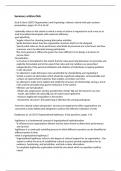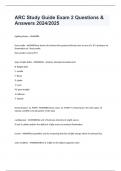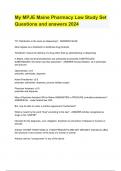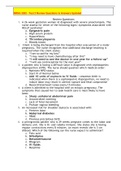Summary
Summary Articles Organizing in Society
- Course
- Institution
Dit document is een samenvatting van alle artikelen die behandeld worden tijdens het vak Organiseren in de Samenleving. De volgende artikelen worden behandeld: -Organizations as Rational Systems (Scott) -Organizational legitimacy: 6 key questions (Deephouse) -Critical Theory (Bohman) -Critical...
[Show more]












